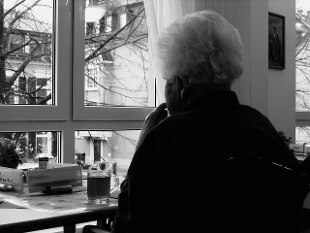Share
September 19, 2021 September 21 is World Alzheimer's Day and just a few days ago a new drug was approved in the United States that appears to be effective against the progression of the disease.
Dementia affects over 55 million people worldwide, with a new case every 3 seconds.
In Italy the numbers say that to date it affects over 1.2 million people and that in 2030 it will be 1.6 million. There are several possible causes but the most common, in about 60% -70% of cases, is Alzheimer's, a disease that affects elderly people, but which can also have an onset between 30/40 years (early) or between i 50/60 (youth). These days, many associations are organizing events in view of World Alzheimer's Day which is celebrated on 21 September, a few days after the approval, in the United States, of a new drug that seems to have efficacy against the progression of the disease.
Symptoms
Symptoms of Alzheimer's and dementia can include memory loss, difficulty understanding what people are saying, difficulty performing daily tasks, mood swings. The end result is disability and loss of one's independence. But Alzheimer's is also one of the conditions most often associated with Covid deaths: recent studies show that Sars-CoV-2 deaths disproportionately affect people with dementia; up to 26% of all deaths from Covid-19 in the UK; over 20% in the Italian regions and Canada. On the other hand, the link between dementia and Covid-19 is double. From a recent study presented by the Alzheimer Association International Conference, it emerges that the neurological impact ofSars-Cov-2 infection on the brain can increase the likelihood of a person developing some form of dementia, but also speed up symptoms and worsen the condition of the disease.
Much research focuses on ways to prevent this type of disease: in fact, there is numerous evidence in favor of the protective role played by lifestyles, such as a healthy diet, physical activity, little alcohol, no smoking. Among the risk factors on which attention has recently been focused there is also noise pollution. A study, published in the British Medical Journal (BMJ) and conducted in Denmark on the data of about 2 million people, shows that the noise of cities increases the risk of dementia: out of 8 thousand cases of dementia, one thousand can be attributed to exposure to the traffic noise of the cities.
Drugs
After decades of research, many of which have not been successful, new hopes open up on the front of therapies with the very recent approval, by the US Food and Drugs Administration (FDA), of Aducanumab: this is the first treatment that is it specifically addresses the degenerative process of the disease and is not limited only to attacking the symptoms of dementia but seems to be able to slow down cognitive decline. "We are confident that the hope of a therapy will also help patients and families to overcome the fear of diagnosis, with an earlier access to the treatment path", concludes the president of Airalzh (Italian Alzheimer's Research Association), Alessandra Mocali. On the occasion of World Day, the hope is "that the sick are taken up as soon as possible,also thanks to territorial medicine, ever since the first ailments begin to appear ".
On the occasion of the World Day, the Alzheimer Italy Federation supports dozens of "Dementia friendly" initiatives to build a more inclusive society for sick and family members and launches the #Notiscordaredivolermibene campaign which aims to create informed citizens to break down the stigma surrounding the disease.

